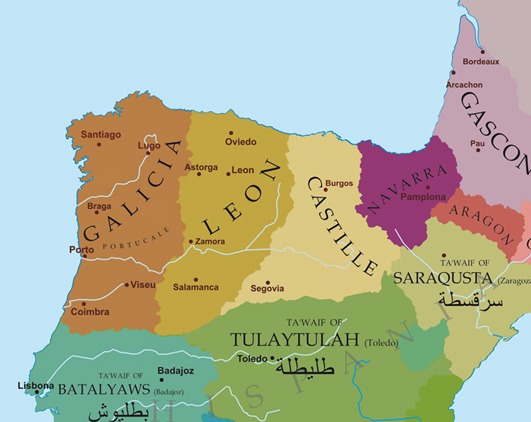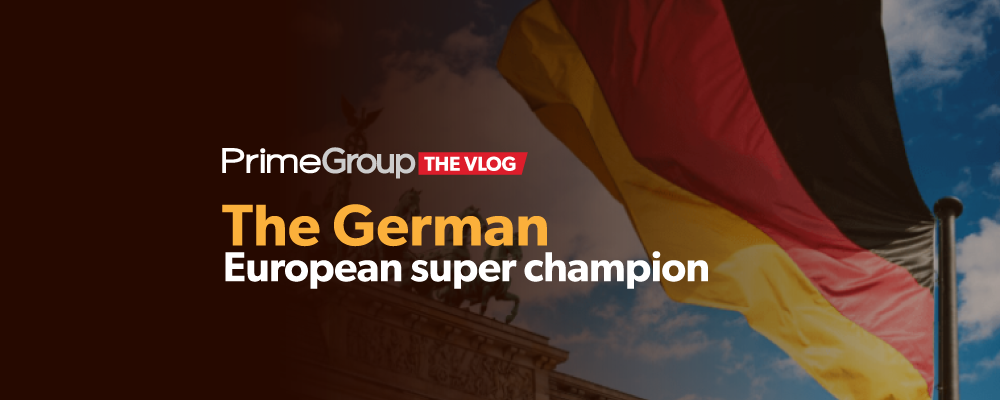We embark on a linguistic journey through the beauty and history of one of the world’s most melodious languages: Portuguese. The language of Camões, born in the West of the Iberian Peninsula, spread across Asia, Africa, and the Americas, wherever the Lusitanian people sailed, colonized, or emigrated. Don’t go away, I’ll tell you more.
Our journey begins in the 12th century, in the northwestern quadrant of the western Iberian Peninsula, where Galician-Portuguese was spoken. This language emerged as an evolution of Vulgar Latin, influenced also by Celtic and Germanic languages. Over time, a distinctive literary culture developed in Galician-Portuguese, in the form of lyrical poetry composed and recited by troubadours.

With the political independence of the ancient PortoCale from the kingdoms of Galicia and León in 1139, the Galician-Portuguese language began to separate into two main branches: Galician and Portuguese. In Galicia, the language maintained a more regional status, although today it is co-official with Spanish in that autonomous community. In Portugal, this language evolved and enriched, becoming standard Portuguese and first spreading towards the southwest of the Iberian Peninsula with the Reconquista against Arab rule and globally through the discoveries and colonization of large areas in Africa, Asia, and South America.
As Portugal set sail for new worlds from the 15th century onwards, its language would anchor in distant shores. Portuguese is spoken today from the Atlantic islands of Cape Verde, São Tomé and Príncipe, and the African coasts of Guinea Bissau, Angola, and Mozambique, to the great Brazilian cities and the Amazon forests, from the beaches of Timor to the islands of Macao, also in the Indian enclave of Goa, or in parts of Sri Lanka, Malaysia, and Indonesia. Portuguese emigration has taken its language to Canada, the United States, France, Venezuela, and South Africa. Portuguese is also predominant in Luxembourg and Andorra.
Portuguese has influenced numerous Asian languages. In English, there are 38 words of Portuguese origin, such as marmalade (citrus jam), flamingo, or buffalo.

And what about Portuñol, a mix of Spanish and Portuguese spoken in border areas and improvised by speakers of both languages to understand each other. We must bear in mind that there is almost no barrier between Spanish and Portuguese. According to Ethnologue, there is an 89% lexical similarity between Portuguese and Spanish. As such, intelligibility is very high between both languages.
In any case, with approximately 230 million native speakers and between 25 and 30 million second-language speakers, Portuguese is the sixth most spoken native language in the world and the third European language in terms of native speakers, and it is also the most used language in South America. Yes, you heard right, in South America, it is spoken more than Spanish, due to the population of Brazil which adds up to 214 million Lusophone inhabitants.
In Brazil, Portuguese not only thrives in big cities Sao Paulo, Rio de Janeiro, Salvador, etc, etc but also penetrates the most remote places of the Amazon as it’s increasingly spoken by hundreds of indigenous tribes there.
Portuguese is a language of contrasts: it is found in the melancholic chords of Fado, in the lively rhythms of Samba, and in the verbal speed of Brazilian auctioneers, the fastest speakers in the world.
Last but not least, Portuguese is a great literary language that accompanied the Portuguese expansion around the world. The writer Luís de Camões would narrate in “Os Lusiadas”, published in 1572, the epic journey of Vasco da Gama to India. The influence of Camões on the Portuguese language and literature is so profound that the Day of Portugal and of the Portuguese Communities, celebrated each year on June 10, has been chosen in commemoration of Camoes’ death date. Camões represents not only the history and identity of Portugal but also the expansion of Portuguese as a global language.
Speaking of contemporary writers in the Portuguese language, we must mention the existentialist poet Fernando Pessoa, Nobel Prize winner José Saramago, the essayist of self-awareness Paulo Coelho, the inspirer of Brazilian soap operas Jorge Amado, or the chronicler of the Portuguese colonial wars Antonio Lobo Antunes.
Learning Portuguese not only opens doors to a diverse cultural realm but can also increase employment prospects, given the growing economy of Brazil, the ninth in the world, and the existence of several emerging markets in Africa where Portuguese is crucial.
More than 30 countries offer Portuguese in the academic curriculum of their universities, recognizing its growing importance in the global discourse.
In commenting on the beauty, importance, and history of Portuguese, I hope you have been as fascinated as I have been by this journey from a small European, Iberian nation to becoming a bridge that connects races, generations, and continents.



